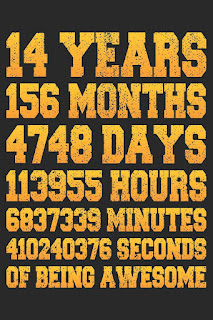The Elements of Argon
Last month I got the opportunity to meet up with augmented reality veteran Blair MacIntyre. Blair directs the Augmented Environments Lab at Georgia Tech, and his research focuses on educational, entertainment and gaming applications of augmented and mixed reality environments, especially those that use personal displays (ie. ranging from see-through head-worn displays to video-mixed handheld displays) to directly augment a user's perception of their environment. Hear my audio interview with him in the video below.

Blair's group at Georgia Tech has released some really great AR applications and games including ARhrrr- an augmented reality zombie shooter built in collaboration with Savannah College of Art and Design (SCAD).
 Blair has recently released the Argon augmented reality browser. Argon is the first open platform for delivering mobile AR that supports web and GIS standards. It uses a framework called KHARMA (KML/HTML Augmented Reality Mobile Architecture). The framework uses standard web servers for content delivery and lets users deploy almost any web-based technology into the surrounding scene using widespread technologies including HTML, CSS and JavaScript.
Blair has recently released the Argon augmented reality browser. Argon is the first open platform for delivering mobile AR that supports web and GIS standards. It uses a framework called KHARMA (KML/HTML Augmented Reality Mobile Architecture). The framework uses standard web servers for content delivery and lets users deploy almost any web-based technology into the surrounding scene using widespread technologies including HTML, CSS and JavaScript.
 Blair has recently released the Argon augmented reality browser. Argon is the first open platform for delivering mobile AR that supports web and GIS standards. It uses a framework called KHARMA (KML/HTML Augmented Reality Mobile Architecture). The framework uses standard web servers for content delivery and lets users deploy almost any web-based technology into the surrounding scene using widespread technologies including HTML, CSS and JavaScript.
Blair has recently released the Argon augmented reality browser. Argon is the first open platform for delivering mobile AR that supports web and GIS standards. It uses a framework called KHARMA (KML/HTML Augmented Reality Mobile Architecture). The framework uses standard web servers for content delivery and lets users deploy almost any web-based technology into the surrounding scene using widespread technologies including HTML, CSS and JavaScript. 
From the Argon website - 'KHARMA seeks to address several practical problems related to mobile AR development and delivery. The platform allows content developers to create content using an extended version of the GoogleEarth markup language and host it using KML files on standard HTTP servers. It establishes a framework for multiple simultaneous channels to utilize content delivered by multiple sources such as tracking information and building infrastructure.
The KHARMA framework is focused on respecting the integral role of tracking and infrastructure within the authoring pipeline both offline and at runtime. And, perhaps most importantly, the platform implements several techniques for overcoming the uncertainties of current tracking technologies and preparing for the future widespread use of vision-based tracking.'
I am very excited about Argon and thank Blair for his support of existing standards. I hope to assist in the promotion of the Argon browser and look forward to developing applications with it.


Comments